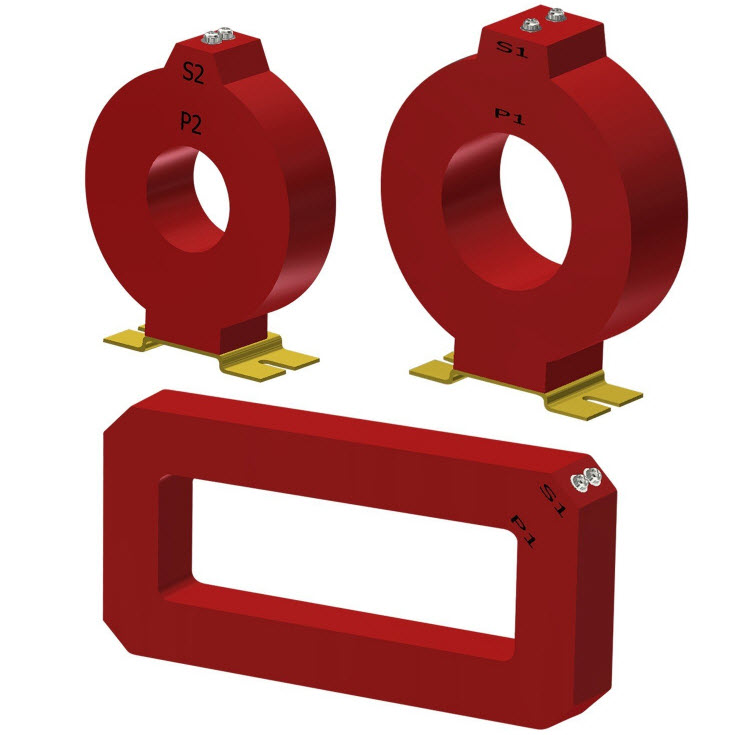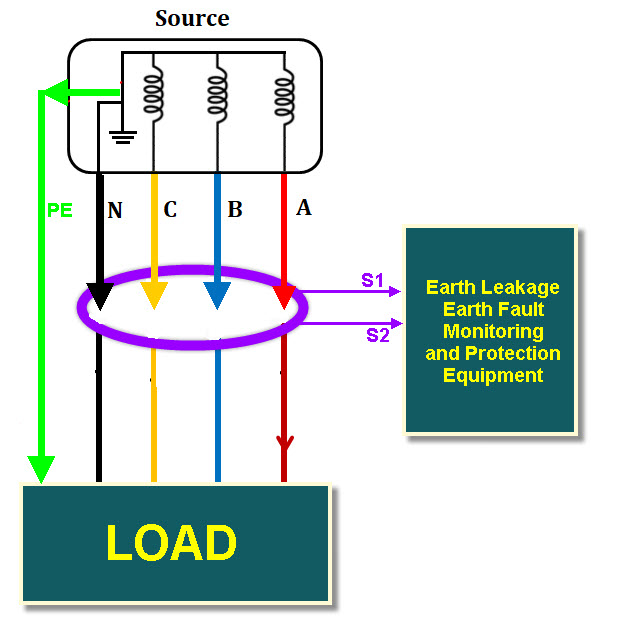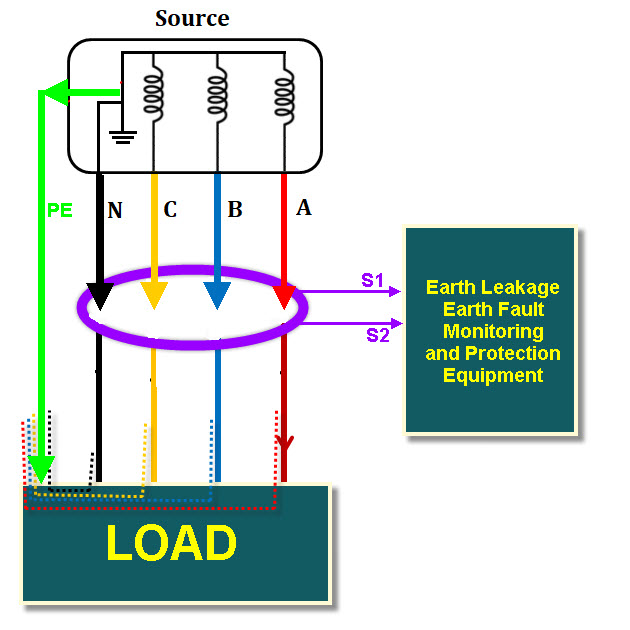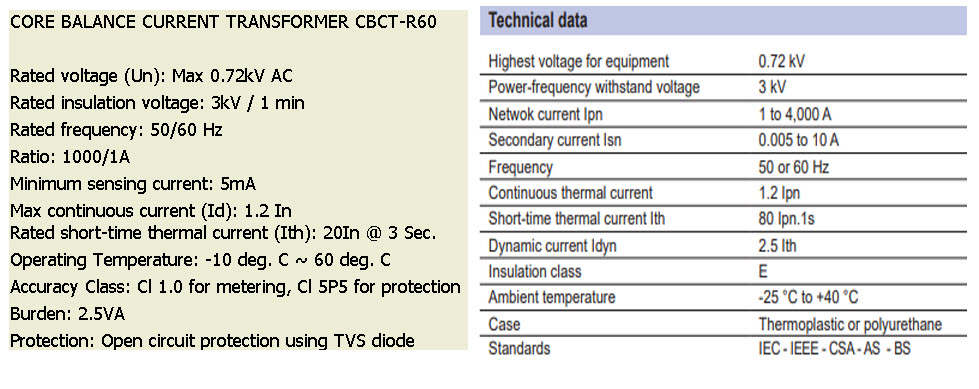Core Balance Current Transformer

What is a Core Balance Current Transformer
Core Balance Current Transformer (CBCT) or a Zero sequence Current Transformer (ZCT) or Zero-Phase Current Transformer (ZPC) is a special current transformer used to detect the zero sequence current during faults (such as Earth Leakage or ground fault) that generates an unbalanced in the electric system.

CBCT / ZCT / ZPC working principle

In the ideal condition, No leakage current. So the sum of incoming current Ia + Ib + Ic + in = -ie =0
Hence, there will not be any flux generated in the CBCT core, so the secondary current in the secondary winding (S1 - S2) is zero
In case There is a leakage current, Ia + Ib + Ic + in = -ie > 0. This leakage current will generate a flux in the core. The flux will generate the secondary current in the secondary winding. The leakage monitoring equpment or earth leakage / earth fault relay will detect this current. Depending on the amplitude of the earth lekage current, the protection relay will send the alarm signal or trip signal to the switchgear
CBCT's Technical parameters

CBCT output signal and ratio
- Output signal: mA or mV (AC)
- Ratio: 50/1; 100/1; 200/1; 500/1 and 1000/1
CBCT Minimum sensing current
The minimum sensing current is the smallest primary current that can be detected by the CT, smaller value is better. Typical value is 10mA
Most of manufacturer just sell their Earth Leakage relay with their CBCT (ZCT, ZPC) without public output signal and ratio. The reason is that they want their device to work with the best compatibility and the best efficiency. Because their main product is leakage current protection relays, their zero sequence current transformer range is not diverse in shape and size.